




Hide/Show
11:00 a.m.–11:30 a.m. Central | Track: General | CRCE: 0.00
11:40 a.m.–12:00 p.m. Central | Track: General | CRCE: 0.00
Show description
The AARC, ARCF, and NBRC will recognize their best and brightest during this year’s virtual awards ceremony. Several AARC members were recognized for their achievements. This year the ceremony will be broken up into 3 parts and presented on the virtual platform. You will have the chance to rewatch the ceremony in its entirety with friends, family, and colleagues on the AARC Facebook and YouTube.
12:05 p.m.–12:55 p.m. Central | Track: Clinical Practice | CRCE: 0.83
David Mannino, MD
Show description

The researchers working on the COPDGene project proposed, in 2019, a new way of defining COPD that expands the spirometric definition and uses other metrics, such as radiographic findings and patient symptoms. This change recognizes that COPD can have several different manifestations and phenotypes that may require different interventions. This presentation will describe these changes, their rationale, and examine how they have been applied in both research and clinical practice.
1:00 p.m.–2:30 p.m. Central | Track: Diagnostics | CRCE: 1.50
Supported by an unrestricted educational grant from
Show description
Researchers present the results of their work. Authors briefly present their findings and engage in an open discussion with the attendees.
1:00 p.m.–4:05 p.m. Central | Track: Adult Acute Care
1:00 p.m.–1:35 p.m. Central | CRCE: 0.58
Brady Scott, PhD, RRT, FAARC
Show description
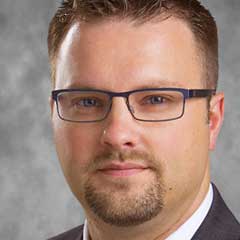
Prone positioning has been demonstrated to improve outcomes in ARDS with severe hypoxemia (PaO2/FIO2 ‹ 150) in mechanically ventilated patients. The hallmark of respiratory failure associated with COVID-19 has been profound hypoxemia. Prone positioning has been successfully applied in these patients. The twist to COVID-19 has been the use of the prone position in patients who have yet to be intubated. The data on so called 'awake' prone positioning will be discussed as part of a treatment plan.
1:40 p.m.–2:15 p.m. Central | CRCE: 0.58
Jie Li, PhD, RRT
Show description

The potential spread of SARS-CoV 2 to caregivers has been a major concern of respiratory therapists performing a myriad of tasks in proximity to the patient’s airway and the source of infection. Intubation, bronchoscopy, and aerosol therapy have all been procedures of concern. HFNC and NIV were avoided early in the treatment owing to concerns of environmental contamination. What are the real risks and what are the protections required to assure therapist safety?
2:50 p.m.–3:25 p.m. Central | CRCE: 0.58
Richard Branson, MSc, RRT, FAARC
Show description
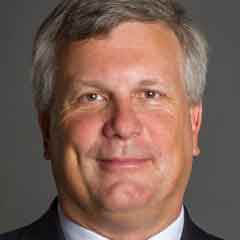
During the COVID-19 pandemic, mechanical ventilation became a household word. Ventilators from the strategic National Stockpile were deployed for the first time. FDA allowed emergency use authorization of new devices including splitters for shared ventilation. Novice inventors from around the world offered up 'first time' ever ventilator designs including 'bag squeezers' and other devices. How did these changes impact the care of patients during the pandemic? What did we learn to inform our response for future events?
3:30 p.m.–4:05 p.m. Central | CRCE: 0.58
Rob Chatburn, MHHS, RRT, FAARC
Show description
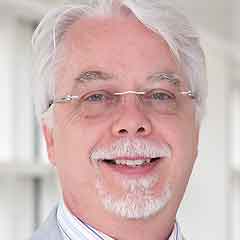
The COVID-19 pandemic has taxed the equipment and personnel resources of hospitals around the world. The volume of patients and use of HFNC and mechanical ventilation in large numbers of patients also highlighted vulnerabilities in hospital-based oxygen systems. One of the large vulnerabilities was the lack of understanding of the function and design of liquid systems. This lecture will review oxygen systems and provide a framework for understanding capabilities in times of surge.
1:00 p.m.–1:35 p.m. Central | Track: Education | CRCE: 0.58
Andrew Klein, MS, RRT, AE-C
Show description
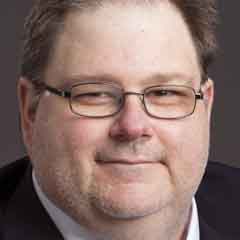
Providing effective bedside education for students is especially important but quite challenging. Students' experiences have a lasting impact on their performance as new employees and their attitude about the profession. This lecture will discuss known effective bedside education practices and ways we still need to improve.
1:00 p.m.–1:35 p.m. Central | Track: Ethics | CRCE: 0.58
James Damron, MDiv, MBE, RRT, CPFT
Show description

Have you ever questioned the right thing to do? Have you ever felt uncomfortable about the treatment plan of your patient? If you have, then this program is for you. The discipline of medical ethics has moved to the center stage of controversies in the wake of the Covid pandemic and the continued demand for individual autonomy. Don’t miss the opportunity to discuss controversial real issues, shocking real cases, and learn simple real applications to your moral distress and ethical concerns.
1:40 p.m.–2:15 p.m. Central | Track: Education | CRCE: 0.58
Ralph Zimmerman, PhD, RRT, RRT-NPS
Show description

This presentation will provide attendees with an overview of how to develop an evidence-based interprofessional simulation program in both the educational and clinical settings. The speaker will discuss the core competencies for interprofessional education (IPE) as well as a case study describing the conception, initiation, and evolution of a university-based interprofessional simulation program. Attendees will also receive information regarding current centers for IPE activities including locations, programs, and shared repositories.
1:40 p.m.–2:15 p.m. Central | Track: Ethics | CRCE: 0.58
Shawna Strickland, PhD, RRT, FAARC
Show description

Palliative care is an important aspect of interdisciplinary, comprehensive, patient-centered care. Effective implementation of palliative care can improve health-related quality of life of patients with advanced illnesses. This presentation will focus on the RT’s role in the interdisciplinary team providing palliative care, including clinician education, patient assessment, and implementation of effective palliative care programs.
2:15 p.m.–2:45 p.m. Central | Track: General | CRCE: 0.00
2:50 p.m.–3:25 p.m. Central | Track: Management | CRCE: 0.58
James Damron, MDiv, MBE, RRT, CPFT
Show description

COVID-19 variants are causing additional waves of the pandemic. How many more waves can RTs take? Burnout could potentially be the final wave of the pandemic but, all hope is not lost. So, sit back, relax, and enjoy a lighter side of health care while you learn ways to protect yourself and others from going up in smoke.
2:50 p.m.–3:25 p.m. Central | Track: Patient Safety | CRCE: 0.58
Kevin McQueen, MHA, RRT, CPPS
Show description

The presentation will describe the large-scale efforts to improve patient safety by implementing a system-wide quality improvement project covering 12 hospitals around opioid administration and electronic monitoring of patients at risk for opioid-induced respiratory depression. The presenter will outline the steps taken to conduct thorough risk assessments, multidisciplinary team approach, creating a state-of-the-art virtual health monitoring component, and helping the manufacturer to redesign their EtC02 nasal cannulas to prevent medical device related pressure injuries. The presentation will also include successes and challenges faced throughout the project roll out.
3:30 p.m.–4:05 p.m. Central | Track: Patient Safety | CRCE: 0.58
Marc Schlessinger, RRT, RRT-NPS, FACHE
Show description

A major focus of Joint Commission surveys continues to be clinical alarm management. One key component of clinical alarm management is alarm fatigue. Much work has been done on physiologic monitoring and the attention has been moving toward ventilator and BiPAP alarm management. This presentation will help therapists take an objective look at alarm fatigue as it pertains to ventilators, BiPAPs, and Pulse Oximeters.
3:00 p.m.–5:00 p.m. Central | Track: Neonatal/Pediatric | CRCE: 1.50
Supported by an unrestricted educational grant from
Show description
Researchers present the results of their work. Authors briefly present their findings and engage in an open discussion with the attendees.
4:10 p.m.–4:55 p.m. Central | Track: General | CRCE: 0.00
Sheri Tooley, BS, RRT, CPFT (AARC)
Tonya Winders, MBA (ARCF)
David Vines, PhD, RRT, FAARC (NBRC)
Pat Munzer, DHSc, RRT, FAARC (CoARC)
Show description
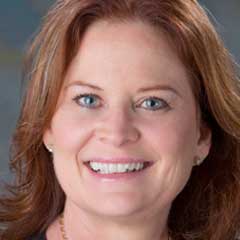
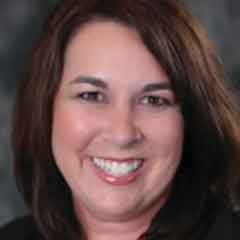
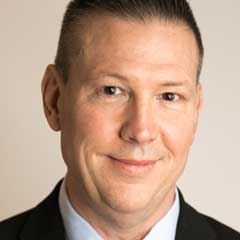
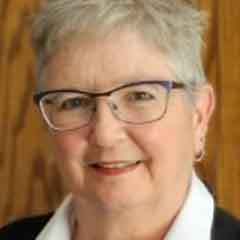
The leadership of the AARC, ARCF, CoARC, and NBRC will present the most updated information affecting the profession, research, accreditation, and credentialing. This is a must-attend session in your agenda!
There are no sessions that match your display preferences.